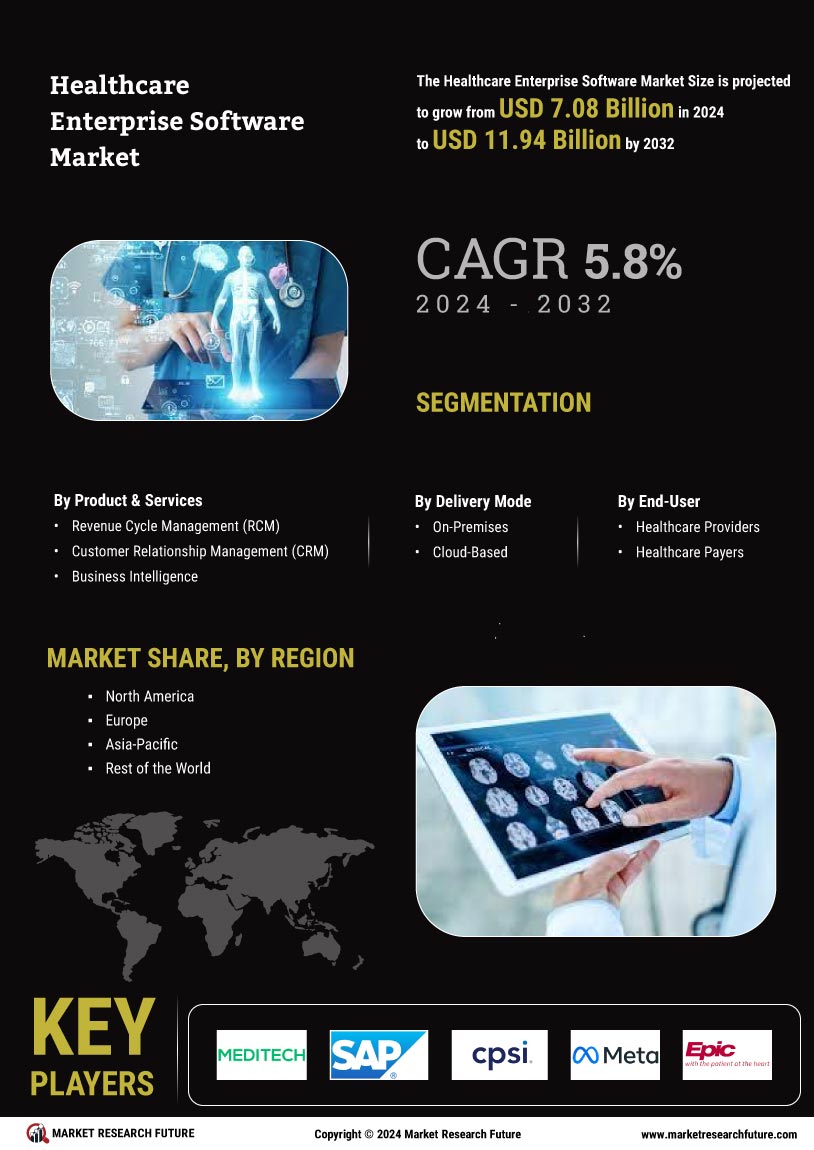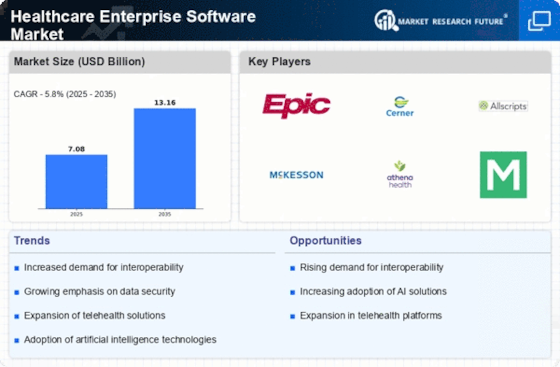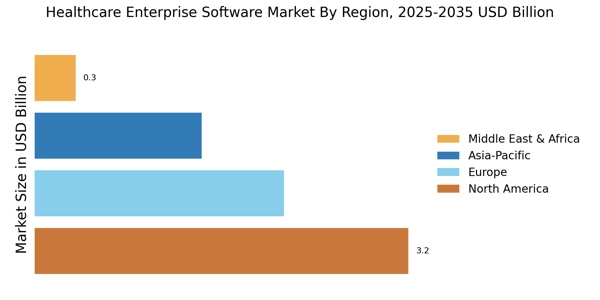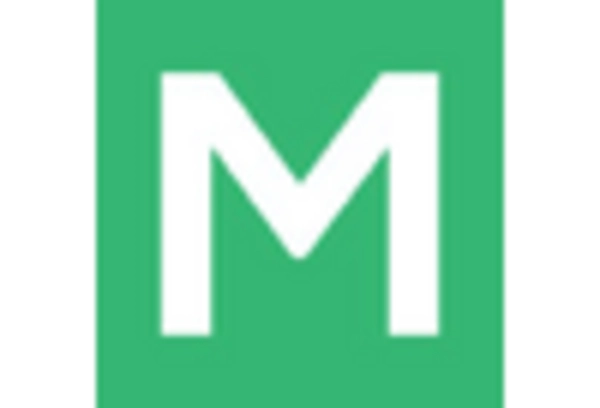Rising Demand for Data Analytics
The Healthcare Enterprise Software Market is experiencing a notable surge in demand for data analytics solutions. Healthcare organizations are increasingly recognizing the value of data-driven decision-making, which enhances operational efficiency and patient outcomes. According to recent estimates, the healthcare analytics market is projected to reach approximately 50 billion dollars by 2026. This growth is driven by the need for improved patient care, cost reduction, and regulatory compliance. As healthcare providers seek to harness the power of big data, the integration of advanced analytics tools into enterprise software becomes essential. Consequently, software vendors are focusing on developing robust analytics capabilities, which is likely to propel the Healthcare Enterprise Software Market forward.
Shift Towards Patient-Centric Care
The Healthcare Enterprise Software Market is witnessing a paradigm shift towards patient-centric care models. Healthcare providers are increasingly prioritizing patient engagement and satisfaction, which necessitates the adoption of software solutions that facilitate personalized care. This shift is reflected in the growing investment in patient relationship management systems and telehealth platforms. Reports suggest that the telehealth market alone is expected to reach 175 billion dollars by 2026. As healthcare organizations strive to enhance patient experiences and outcomes, the demand for enterprise software that supports these initiatives is likely to increase, thereby driving growth in the Healthcare Enterprise Software Market.
Integration of Telehealth Solutions
The integration of telehealth solutions is emerging as a significant driver in the Healthcare Enterprise Software Market. As healthcare providers seek to expand access to care, telehealth platforms are becoming essential components of enterprise software. The convenience and efficiency of remote consultations are reshaping patient-provider interactions. Recent data indicates that the telehealth market is projected to grow at a compound annual growth rate of over 30% through 2026. This rapid expansion underscores the necessity for healthcare organizations to adopt comprehensive software solutions that incorporate telehealth functionalities. Consequently, the demand for integrated healthcare enterprise software is likely to rise, reflecting the evolving landscape of healthcare delivery.
Regulatory Compliance and Standards
Regulatory compliance remains a critical driver within the Healthcare Enterprise Software Market. As healthcare regulations evolve, organizations must adapt their software solutions to meet stringent requirements. Compliance with standards such as HIPAA and GDPR is paramount for safeguarding patient data and ensuring privacy. The increasing complexity of regulations necessitates the implementation of sophisticated software solutions that can streamline compliance processes. It is estimated that the compliance software market in healthcare could exceed 10 billion dollars by 2025. This trend indicates a growing recognition of the importance of compliance in maintaining operational integrity and avoiding costly penalties, thereby driving demand for specialized enterprise software.
Increased Investment in Cybersecurity
As cyber threats continue to escalate, the Healthcare Enterprise Software Market is witnessing increased investment in cybersecurity measures. Healthcare organizations are prime targets for cyberattacks due to the sensitive nature of patient data. The need to protect this information has led to a heightened focus on developing secure software solutions. It is estimated that the healthcare cybersecurity market could reach 34 billion dollars by 2026. This trend indicates a growing awareness of the importance of cybersecurity in maintaining trust and compliance within the healthcare sector. As a result, software vendors are prioritizing the integration of advanced security features into their enterprise solutions, thereby driving growth in the Healthcare Enterprise Software Market.

















